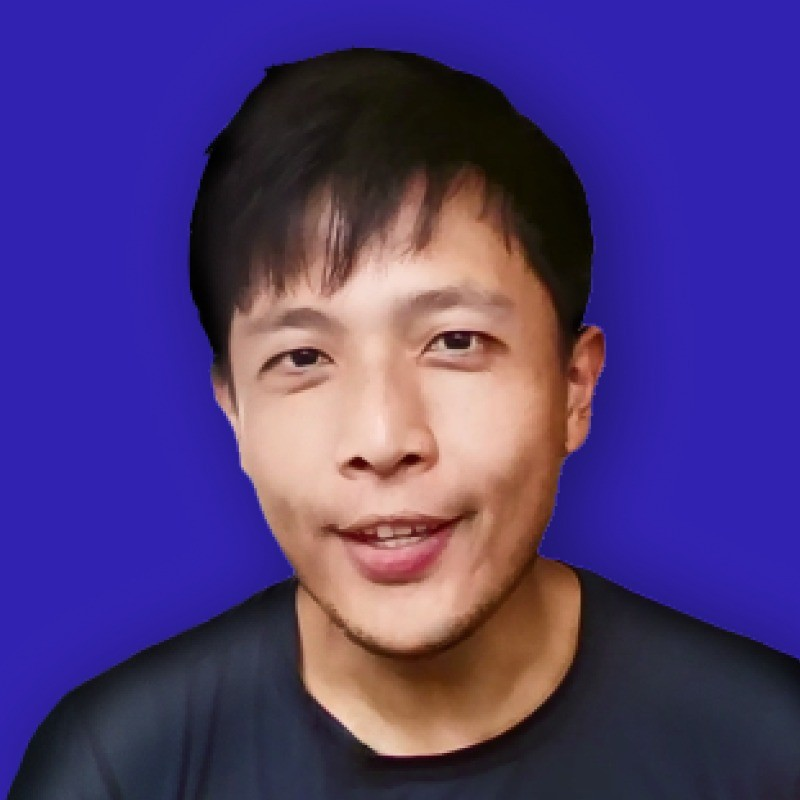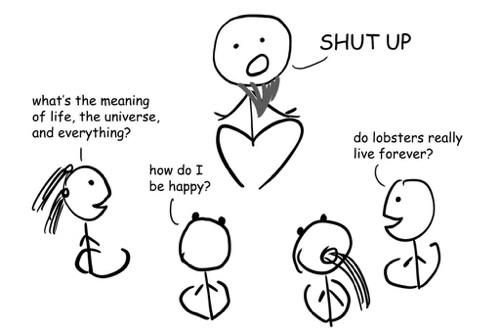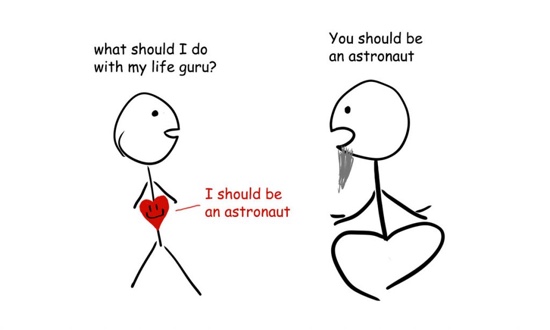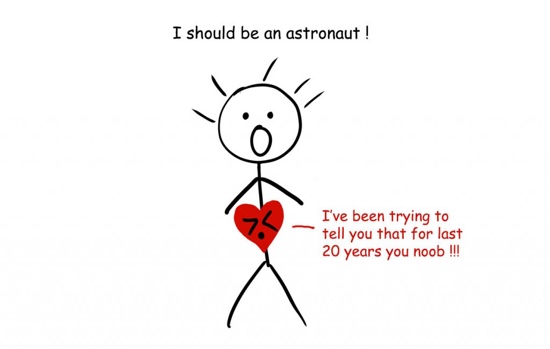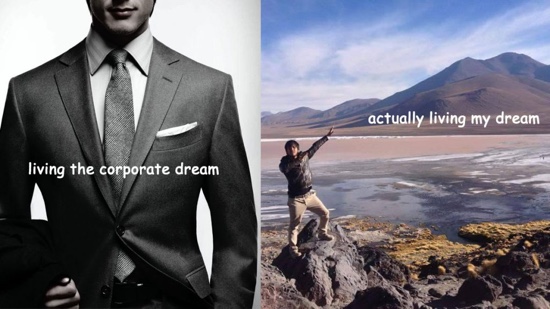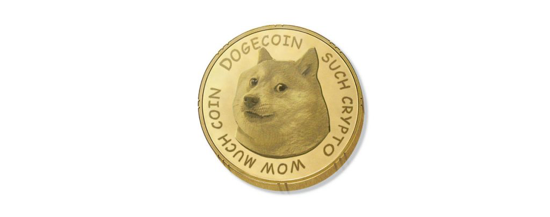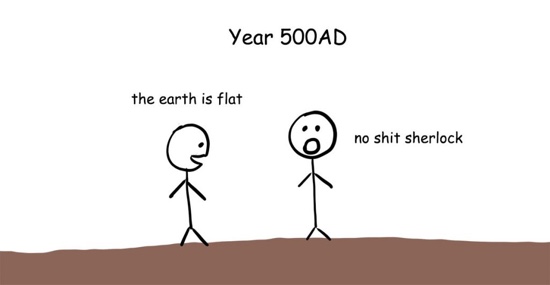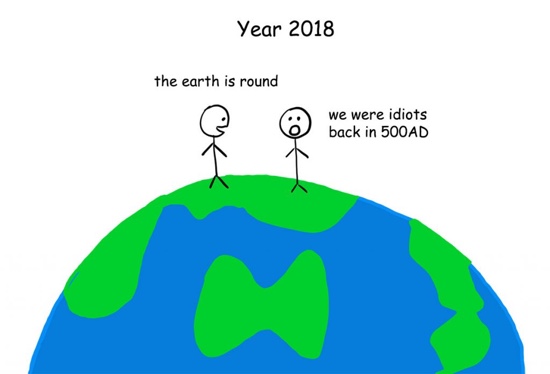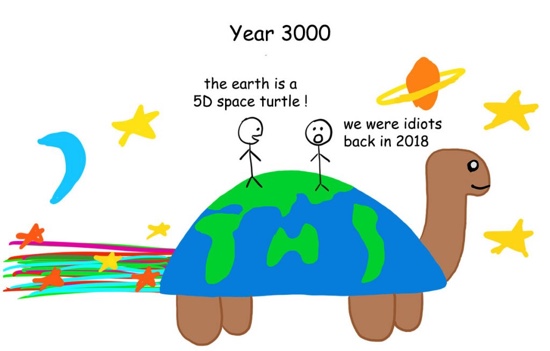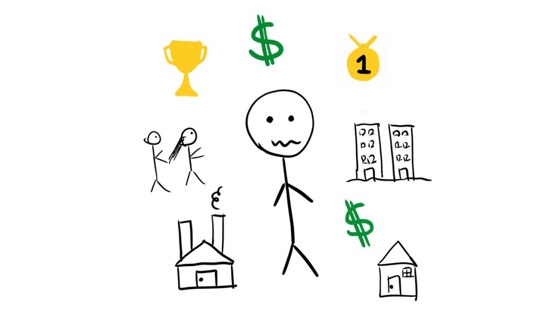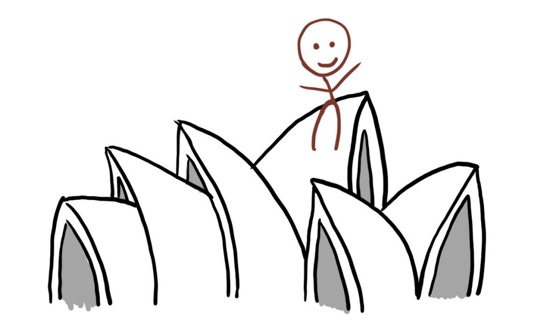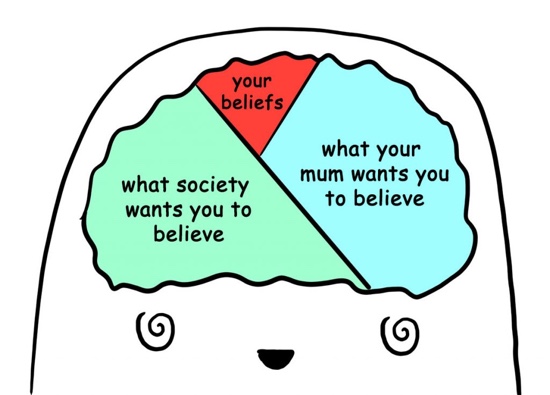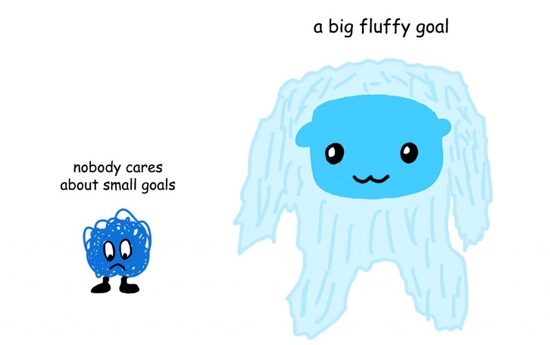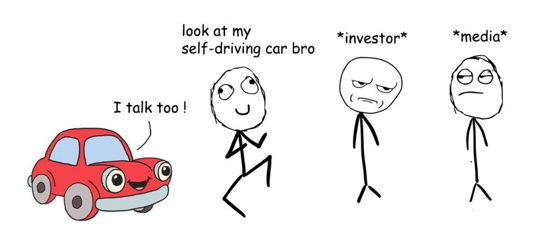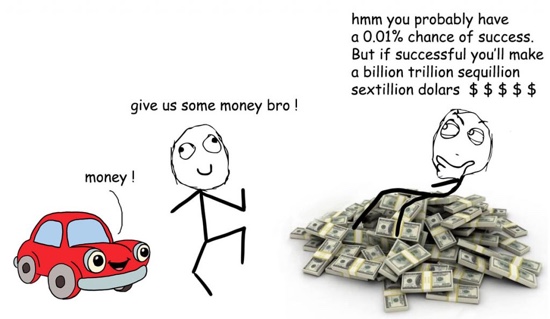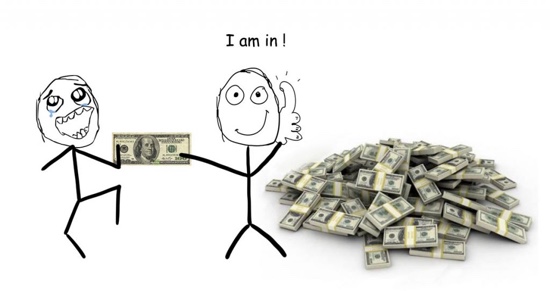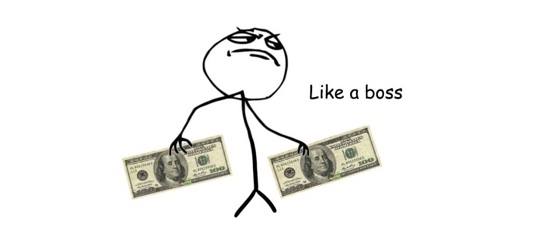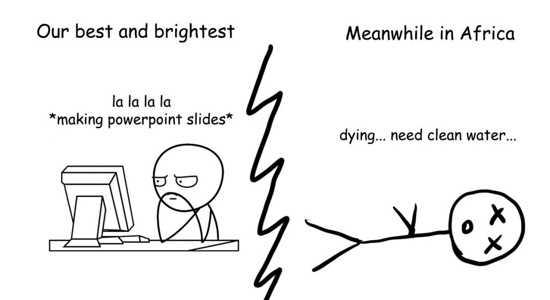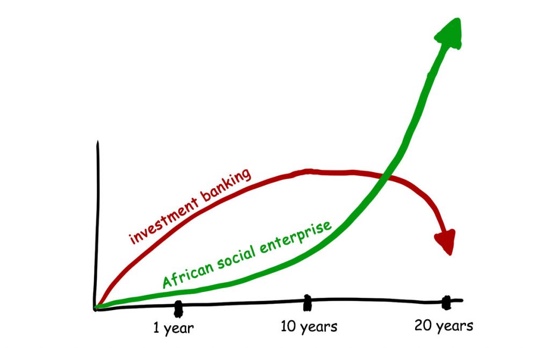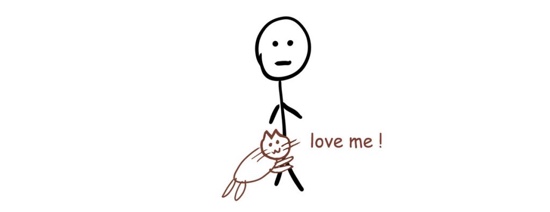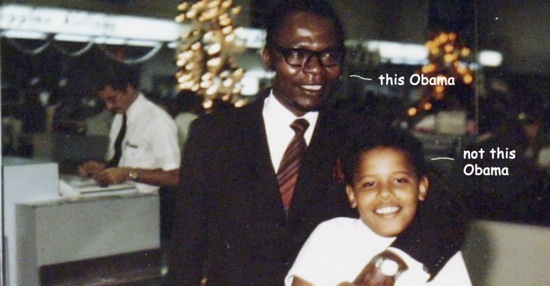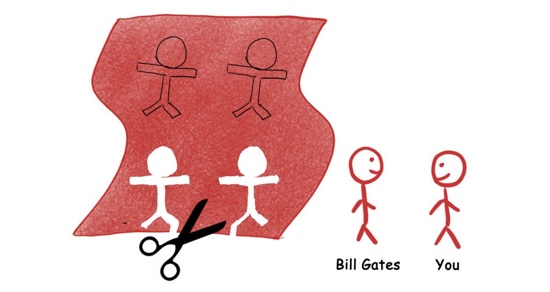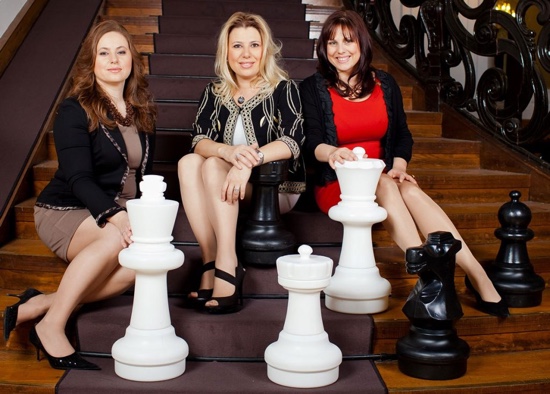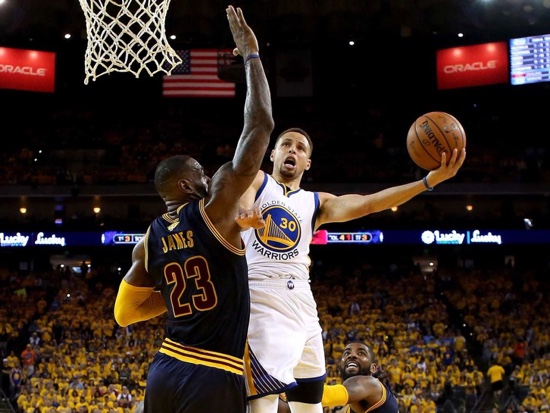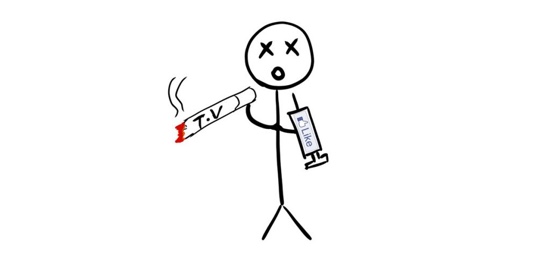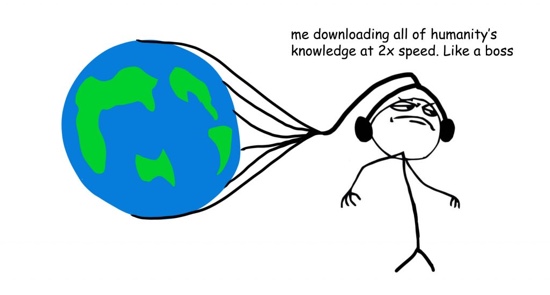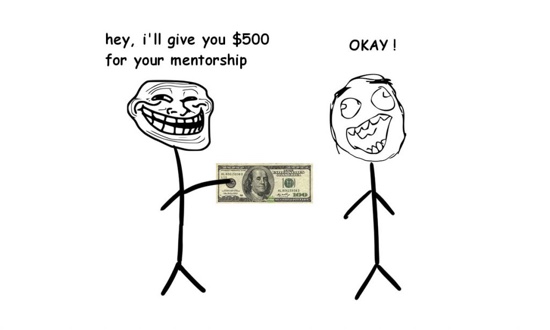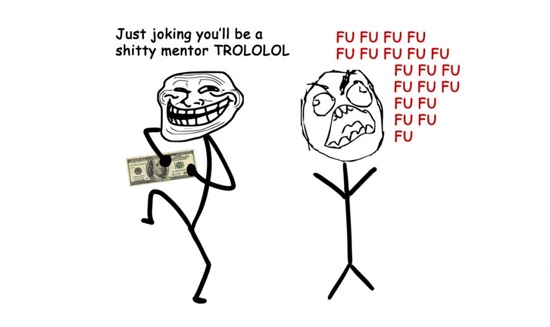I went to one of those personal development cults seminars once, and I asked a barrage of questions:
“Shut up,” the seminar leader said
“You already know all the answers inside. You’re just asking me for permission to do what you already know is right. You’re looking for validation. Stop. You don’t need anyone’s permission. When you get an internal sense of what’s right, just go do it. Act, and then see what happens. Adjust your actions depending on the results that you get.
When you come across a problem, think for yourself how to solve it, trust in your own judgement. See the world with your own fresh pair of eyes and make your own conclusions from first hand experience. Don’t just listen to everything that other people tell you. Always question and think critically; other people are no smarter than you are. Listen to others, but think for yourself.”
Follow your heart
The best advice I’ve ever gotten in my life is to follow my heart. I think of it like, there’s a guiding compass inside of me, that always knows which direction to go. An inner voice that knows what’s right. I just need to tune into it and trust it.
For example, right after university, I worked in investment banking and hated my life. I hated the lack of freedom, the repetitive tasks, the ass kissing. I knew I wanted to work on my own business. An online business that would let me travel and explore the world. But I didn’t trust myself. I’ve studied so hard to land this job. All my friends where in corporate. How could it possibly be the right move to leave when everyone else was happily working? Wasn’t I living the corporate dream? I kept looking to other people for career advice, when I already knew. It took me 6 months to find the courage. I decided to start my own business – it was the best decision of my life.
Elon Musk also follows his heart. He calls it: “thinking from first principles”. When asked how he came up with the ideas for Tesla, SpaceX and Paypal, Elon looked inside. He asked himself what are the biggest problems that humanity is currently facing? And thought about solutions to those problems. Meanwhile, most people are caught up with the crowd, trying to ride market trends. Let’s do cryptocurrency for dogs!
Social conditioning
There are all these people telling us how we should live our lives. Social conditioning is messing with us everywhere. Work is telling us that climbing the corporate ladder means success in life. Fashion trends are defining what beautiful is. Our social group is making us conform and act in a socially acceptable way.
Man, I see in Fight Club the strongest and smartest men who’ve ever lived. I see all this potential, and I see it squandered. God damn it, an entire generation pumping gas, waiting tables – slaves with white collars. Advertising has us chasing cars and clothes, working jobs we hate so we can buy shit we don’t need. We’re the middle children of history, man. No purpose or place. We have no Great War. No Great Depression. Our great war is a spiritual war. Our great depression is our lives. We’ve all been raised by television to believe that one day we’d all be millionaires, and movie gods, and rock stars, but we won’t. We’re slowly learning that fact. And we’re very, very pissed off. –Fight Club
Humans are tribal creatures; we’re wired to go with the crowd. But just because everyone else believes in something, it does not mean that it’s right. In the past, everyone believed that the earth was flat. We look back and think that’s ridiculous. Now imagine that you’re in the future looking back. Could it be that there are heaps of popular beliefs we hold today that our future selves would think are ridiculous?
We forget to listen to ourselves. Our default state is to listen to others. We spend our lives trying to live up to other people’s expectations. But most people have never sat down and really thought about what they want to do with their lives. And it’s important that we think about it because we only have one life. We only have a limited time on this planet. One day we will be dead.
Your time is limited so don’t waste it living someone else’s life. Don’t be trapped by dogma which is living with the results of other people’s thinking. Don’t let the noise of others’ opinions drown out your own inner voice. And most importantly, have the courage to follow your heart and intuition. They somehow already know what you truly want to become. – Steve Jobs
The challenge for our generation is creating a world where everyone has a sense of purpose. Purpose is that sense that we are part of something bigger than ourselves, that we are needed, that we have something better ahead to work for. Purpose is what creates true happiness. -Mark Zuckerberg
Social conditioning vs following our hearts
Do we listen to social conditioning? Or do we follow our hearts? The book “The Fountainhead” explores this question. The story goes like this:
Once upon a time there were two architects who went to university together – Peter and Howard. Peter was super social; he became the head of the architecture society. He networked his way into a really prestigious firm after he graduated. Worked incredibly hard, sucked up to all the right people and eventually became a director of the firm. Made tonnes of money and retired a rich man. Towards the end of his days, though, he looked back on all the buildings that he designed and thought to himself: “All these buildings are ugly, I don’t like a single one of them. Every building I designed was driven by what the client wanted, or what my firm wanted.” He felt like his vision of the perfect building was still trapped inside him, and that nothing he achieved in life meant anything.
Meanwhile the other architect, Howard, just didn’t give a damn. He hated the Victorian design classes at university because it was unnecessarily ornate. Howard wanted to do minimalist post modern design. He ended up dropping out of university and going to intern with an architect who he had a lot of respect for. However, the architect wasn’t getting much business because his designs were so radical. Later on, Howard started his own firm. But he would only take on clients if the client gave him complete freedom to design the building however he wanted. His clients would have no say in the design at all. Howard didn’t have many clients and only built a few buildings in his career. However, he felt that every building that he built was a representation of his truest vision of art. The pylons of the building were like Howard’s bones, the windows and wooden finishings were his skin and flesh, each building was a temple to his soul.
Would you rather be Howard? Or would you rather be Peter?
How has social conditioning influenced how you live?
Write down 10 of your core beliefs.
Which of your beliefs did you consciously decide upon, and how many have been dictated by society?
Which of your beliefs are helping you and which beliefs are holding you?
Are you living the life you want to live, or the life society wants you to live?
How do YOU want to live your life?
Love what you do
Your work is going to fill a large part of your life, and the only way to be truely satisfied is to do what you believe is great work. And the only way to do great work is to love what you do. If you haven’t found it yet, keep looking. Don’t settle. As with all matters of the heart, you’ll know when you find it. And, like any great relationship, it just gets better and better as the years roll on. So keep looking until you find it. Don’t settle. – Steve Jobs
Why bigger goals are better
Most people set small goals in life. We don’t set ourselves big goals because we’ll fail. But big goals are actually easier to achieve than small goals. People are inspired by big goals and will go out of their way to help you. Investors will give you money. Big goals create movements and bring together teams. Small goals may be easier to accomplish, but not as many people will help you do it. Also there’s much less competition with big goals. How many of your friends are trying to cure cancer or solve cold fusion? How many friends work in accounting? Sure curing cancer is a million times harder than working in accounting, but there’s a million times more people that your competing against if you choose accounting.
When I started my coupon site 7 years ago, I just wanted to earn enough money to support myself and travel. This wasn’t going to become a big business, so I had trouble attracting investors. When I pitched at startup conferences, investors would be like, “cool story bro, needs more dragons.” I had no money, and my goal wasn’t very inspiring, so I had trouble hiring great people. I ended up spending 4 years figuring out marketing by myself and building the business to a level where it supports my lifestyle – yay, go me.
Meanwhile, Tim Kently-Klay managed to build Zoox into a 1.5 billion dollar business in the same time frame. Right… So wtf am I doing with my life? Here’s how Tim did it. One day Tim woke up and was like, “I want to build fully autonomous self driving cars”. No, not some half-hearted version like Tesla. Tim explains that by completely removing the steering wheel, driver’s seat and components needed for human driving, you can make a much more efficient self driving robot. A fully autonomous Uber – that was the dream. A slight problem was that Tim knew nothing about self driving cars. But Tim was a hella smart guy who had started a successful graphics design company in the past, so he set about reading everything he could on self driving cars. After a year of intense study, he drew out some blueprints for his self driving car which he displayed at some conferences.
His plans were given the honorable title of “Vaporware Horsecrap” by critics. However, Tim hustled on and met Niki the venture capitalist.
Tim took that million dollars and went to the self driving car team at Apple. He said to them, “hey so you know… you guys are all screwed because Apple is shutting down their self driving car project. So come join me and we shall conquer the world.” And the self-driving car team is like, sure, seems legit, why not? Then Tim went to Lord Draper, the greatest venture capitalist of them all, and was like, “Hey I am building a self driving car and have the best team in the world to do it, you should give me 30 million dollars.” Draper thought for a while and then he’s like, sure why not? Tim took that money and convinced more people to join his jihad. Then he goes and raises 250m at a $1.5bn valuation. Tim does all this in 4 years.
I set a small goal; build a coupon site. In 4 years I accomplished it. Tim set a big goal; make fully autonomous self driving cars. And in 4 years he has built a $1.5bn company.
What would you rather be doing?
If you could achieve anything, what would you be working on?
What about money?
When I was in college choosing my career, all I cared about was: how much money could I make? So I chose investment banking. And I quit after 6 months. But anyway. Most of my peer group chose their careers because of money. It wasn’t always like this. Back in the 60s, we had just landed on the moon. Einstein and Edison were the celebrities of the day. People wanted to be inventors, explorers and scientists – to work on things that would push forward the envelope of human progress. Nowadays people want money – financial security. What happened to changing the world? Most people are not working on meaningful problems. Millions are dying in Africa. Our best and brightest proceed to go work in finance or tech or whatever industry is the most cashed up.
If you say that getting the money is the most important thing, you’ll spend your life completely wasting your time. You’ll be doing things you don’t like doing in order to go on living, that is to go on doing thing you don’t like doing, which is stupid. – Alan Watts
Being the richest man in the cemetery doesn’t matter to me. Going to be at night saying we’ve done something wonderful that’s what matters to me. – Steve Jobs
Here’s the thing: solving the world’s biggest problems is the best way to make money. This makes sense from an economics perspective. If you create the most value then the market will reward you with the most money. But wait, how the hell would working to solve poverty in Africa make more money than being an investment banker? Banking appears to be a steadier path to making more money – if we view things from a short term perspective. But what about in 10 years, 20 years and more?
Most people overestimate what they can do in one year and underestimate what they can do in ten years – Bill Gates
Let’s say you start a social enterprise in Africa. In your first year you make nothing and your banker friend makes $150k. In 10 years, your social enterprise does well enough for you to live comfortably. Meanwhile your friend is making $2m as a director. You wonder if you made the wrong choice. But in 20 years, Africa grows rapidly, income levels rise 20x to western levels. Business is booming because your customers can afford to pay you western prices. Everyone now wants to invest in Africa. Multinationals are in a bidding war to buy your company. The land that you brought for ten thousand dollars per hectare is now worth a one million dollars per hectare. You are now worth over $100m. Meanwhile the world realizes investment bankers are basically glorified real estate agents – annoying and unnecessary. Bankers and real estate agents get replaced by a super efficient AI marketplace and your friend is made redundant.
But it's risky
Sure, chasing big goals is risky. People say that 9 out of 10 new ventures fail. Well, what if you tried 30 times? It’ll take about 4 months to see if a venture will work out, so you can try 3 new ventures a year. If you work on it for 10 years, you’ve tried 30 different ventures and you’re basically guaranteed success.
How I got over risk of starting my own business was, I said to myself: even if I tried for the rest of my life and I died trying, would I be happy? Yes, because I enjoy the process of trying to change the world, building a business, and working on something I find meaningful. I can’t control if I will succeed or not. What matters is that I tried.
It is not the critic who counts; not the man who points out how the strong man stumbles, or where the doer of deeds could have done them better. The credit belongs to the man who is actually in the arena, whose face is marred by dust and sweat and blood; who strives valiantly; who errs, who comes short again and again, because there is no effort without error and shortcoming; but who does actually strive to do the deeds; who knows great enthusiasms, the great devotions; who spends himself in a worthy cause; who at the best knows in the end the triumph of high achievement, and who at the worst, if he fails, at least fails while daring greatly, so that his place shall never be with those cold and timid souls who neither know victory nor defeat. – Theodore Roosevelt
Imagine at the end of your life, you realized that you never gave your dream a try. You just let it slip past. How would you feel?
When I was 17, I read a quote that went something like, “If you live each day as if it were your last, someday you’ll most certainly be right.” It made an impression on me… and since then, for the past 33 years I have looked in the mirror every morning and asked myself, “If today were the last day of my life, would I want to do what I’m about to do today.”
And whenever the answer has been, “no” for too many days in a row, I know I need to change something. Remembering that I’ll be dead soon is the most important tool I’ve ever encountered to help me make the big choices in life.
Because almost everything: all external expectations, all pride, all fear of embarrassment or failure… these things just fall away in the face of death… leaving only what is truly important.
Remembering that you are going to die is the best way I know to avoid the trap of thinking you have something to lose. You are already naked. There is no reason not to follow your heart. – Steve Jobs
Limiting beliefs
People have all these limiting beliefs about why they can’t achieve their dreams. Like, I am not smart enough, I have a family to support, I am too old, I have a very needy cat.
Those who are crazy enough to think they can change the world usually do – Steve Jobs
People seriously underestimate how far willpower can take you. It doesn’t matter where you come from or what your circumstances are. Got a family to support? Keep your day job and work on your dreams at night. Not smart enough? Spend twice as long studying. Too old? KFC was built by a 70 year old. You are not a victim of your circumstances.
What are some things you want to achieve but feel like you can’t?
You can do anything set your mind to man
If there’s one story that demonstrates how far willpower will take you despite the hand you’ve been dealt, it’s that of Barrack Obama. No not the president, but his father Barrack Obama Sr.
Obama Sr grew up in one of the poorest families in the world in Sub-Saharan Africa, but his son went on to become the most powerful man in the world. How did this happen?
Obama Sr grew up in a Kenyan village. School was a little shanty hut where all the village children were packed into one class. Education sucked, but Obama Sr showed some spark. He had one thing going for him: he was able to learn English since grandfather Obama was a cook in a white household. One day, some aid workers came to visit their village. Teenage Obama Sr was like, “damn those aid workers looking fine, I think I’ll go chat them up.” The aid workers were impressed by Obama Sr’s drive and encouraged him to apply to the University of Hawaii’s African scholarship program. Barrack Sr studied intensely and with the tutorship of the aid workers managed to get the scholarship. At the University of Hawaii Obama Sr met Ann Dunham who would become Obama Jr’s mother. When he wasn’t chasing skirts, he managed to top his class and get a full scholarship into Harvard Law School. Willpower can get you from growing up in sub-Saharan Africa to going to Harvard Law School, to your son becoming the president of the United States.
Now you may be thinking Obama Sr is smarter and more driven than I’ll ever be. He has better genetics. Just because he has achieved greatness doesn’t mean that I can. But are successful people really smarter than us? So I was in Silicon Valley last year doing a program called 500startups where I got to meet tech billionaires and industry leaders. It was surprisingly underwhelming… The advice these billionaires gave was mostly self indulgent, generic and useless details. “so I cooked lunch for my team everyday, and everyone loved my cooking”. “Ohh marketing, we didn’t do any marketing, the product just grew by itself”. The best advice I got was actually from other startup founders who were still hustling to make it. Then it struck me. These billionaires are not better than the rest of us. They’ve just worked hard and on the right things. But they’re fallible humans. We are all cut from the same cloth. I can do whatever they can do.
Malcolm Gladwell writes about the 10,000 hour rule: how a master in any field has practiced for at least 10,000 hours. If we put in that amount of hours, we can master anything. Take Laszlo Polgar, a Hungarian psychologist who, after studying hundreds of great intellectuals, identified a common theme – early and intensive practice. He hypothesized that with intense practice, he could turn his three daughters into prodigies. He chose chess as the perfect activity to train his children in, because it was creative and analytical and had objectively measurable results. Two of his daughters went on to become grand-masters. No women had ever achieved the title of grand-master before. All three daughters ranked in the top 6 in the world for chess.
Sure, we’re born with certain physical characteristics or elements of our personality that are hard to change. But the moment that we accept ourselves, take the wheel and start steering, that’s when things start happening. Take Lebron James vs Steph Curry. Lebron has the perfect genetic build for a basketball player. Steph doesn’t. He doesn’t have the height, he doesn’t have the bulk. But he doesn’t give a damn. He proceeds to practice the hell out of his shot. And with that, he has achieved a level of success to rival Lebron. You may not be able to change some part of yourself, but you can develop other parts and be just as effective.
Cool, so I believe I can do anything I set my mind to. But…
How do I figure out what I want to do in my life?
To discover your “why”, ask yourself these questions. Find the common denominators in the answers and you’ll have your first lead to explore in finding your why. The commonalities in your answers may point you towards your purpose, and give you some directions to explore.
What do you think is biggest problem in the world right now?
If money and time weren’t limiting factors, what would you allow yourself to dream of doing?
What makes you feel angry, or rise up at the injustice you see?
What gets your emotions going? what brings tears to your eyes?
What makes you happy?
–Daniel Flynn, founder Thankyou Water
Read
Read. Do a tonne of reading, and then read some more. There are world leaders and billionaires who have spent years distilling the best of their life’s wisdom and principles of success into books. Books that we can access instantly for $10 on Amazon. It’s the digital age. We are the first generation to have the entire trove of human knowledge available on demand in our pocket
Yet most of us don’t read. Instead we spend our time watching TV. What did Kim K name her kid? Did North Korea fire another rocket? What happens next on Game of Thrones? All this crap we don’t need to know about. Our newest drug addiction is social media. It gives us a hit of validation, a new like, another viral video. But there’s no substance, no meaning. The short term hit leaves us shallow inside and longing for another, and another. Popular media is messing up our brains. It’s the information age buffet. Because we’re fat blobs from the first world, we say, give me all the junk food, broccoli can get stuffed. We need to treat the information we consume like food and watch what we’re putting into our bodies.
The best life hack that anyone has ever told me is to listen to audio-books at 2x speed. You can listen to audio-books whilst you’re at the gym, or driving, or any other mindless task. This way, it’s easy to find 2-3 hours everyday, and if you do, you can finish 2 books every week, and 100 books a year. 100 books will put you miles ahead. Most people don’t even finish 100 books in their lifetime. I started audio-books 3 years ago, and I’ve learnt more in 3 years than I have in the rest of my life combined. School didn’t teach me useful skills, books did. Books written by people who have done it before. You can get most popular titles on Amazon’s Audible book store. Make sure you select the USA Audible store as this has the widest selection.
What should I read?
Check the New York Times best sellers list. Ask mentors what their favorite books are. Google for book recommendations by Bill Gates, Mark Zuckerberg or other people you respect.
Here’s a list of my favorite books:
The Power of Now by Eckhart Tolle
The Fountainhead by Ayn Rand
Self Compassion by Kirstin Neff
The Four Agreements by Don Miguel Ruiz
The Singularity is Near by Ray Kurtzweil
Crucial Conversations by Kerry Patterson
The Subtle Art of Not Giving a Fuck by Mark Manson
100 book recommendations <TBA>
Find mentors
After reading and researching what I wanted to do. I got in touch with people who’ve done it before. No matter what you’re trying to achieve, there are 7 billion people in the world and there are people out there who have done similar things to what you’re attempting to do. Find these people on Linkedin and ask for their mentorship. Ask people who are not your direct competitors, people in a different geography or who have moved onto something else. You’d be surprised at how many people respond. I got around a 30% response rate. Here’s an email that I sent.
Hi John,
I am Rob, an Australian tech entrepreneur linkedin.com/in/robliu. We’re building contactout.com a recruitment tool similar to Connectifier but targeting the Australian and UK markets.
I would greatly appreciate your mentorship and advice on growth and how to do sales for recruitment tools, and any insights you’ve gained from your experience at Connectifier.
Would you be free for a brief chat on Skype? Happy to send you $500 for your time.
Kind Regards, Rob Liu
John was previously VP Marketing at Connectifier, a competitor whose business model I was trying to copy. John came on board as an adviser and helped me add over one million dollars in value to my business. It all started with an email.
When emailing, bribe people. Offer them $500 to talk to you. This makes it look like you’re serious about your request and respectful of their time. Most mentors are rich already and won’t accept your money. For people who do accept your money, don’t bother talking with them. Because if they need $500, then they’re probably not very successful, and would make a crappy mentor.
After reading, researching, finding mentors, you’ll still have to figure out a lot of the journey by yourself. You’re aiming to do something great and that involves blazing a path into the unknown. It’s like playing soccer. You can read all about soccer tactics, you can practice dribbling, practice kicking. But if you want to get good at soccer, you need to get out onto the field and play the game. Think for yourself, follow your heart, and take action.
You can’t connect the dots looking forward; you can only connect them looking backwards. So you have to trust that the dots will somehow connect in your future. You have to trust in something – your gut, destiny, life, karma, whatever. Because believing that the dots will connect down the road will give you the confidence to follow your heart even when it leads you off the well worn path; and that will make all the difference. –Steve Jobs
You are on this earth for a reason
We’re here to put a dent in the universe. Otherwise why else even be here? –Steve Jobs
“Are you a born writer? Were you put on earth to be a painter, a scientist, an apostle of peace? In the end the question can only be answered by action.
Do it or don’t do it.
It may help to think of it this way. If you were meant to cure cancer or write a symphony or crack cold fusion and you don’t do it, you not only hurt yourself, even destroy yourself,. You hurt your children. You hurt me. You hurt the planet.
You shame the angels who watch over you and you spite the Almighty, who created you and only you with your unique gifts, for the sole purpose of nudging the human race one millimeter farther along its path back to God.
Creative work is not a selfish act or a bid for attention on the part of the actor. It’s a gift to the world and every being in it. Don’t cheat us of your contribution. Give us what you’ve got.”–Steven Pressfield
